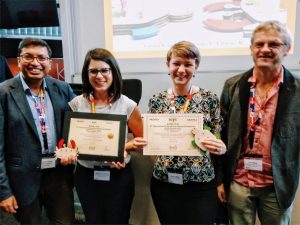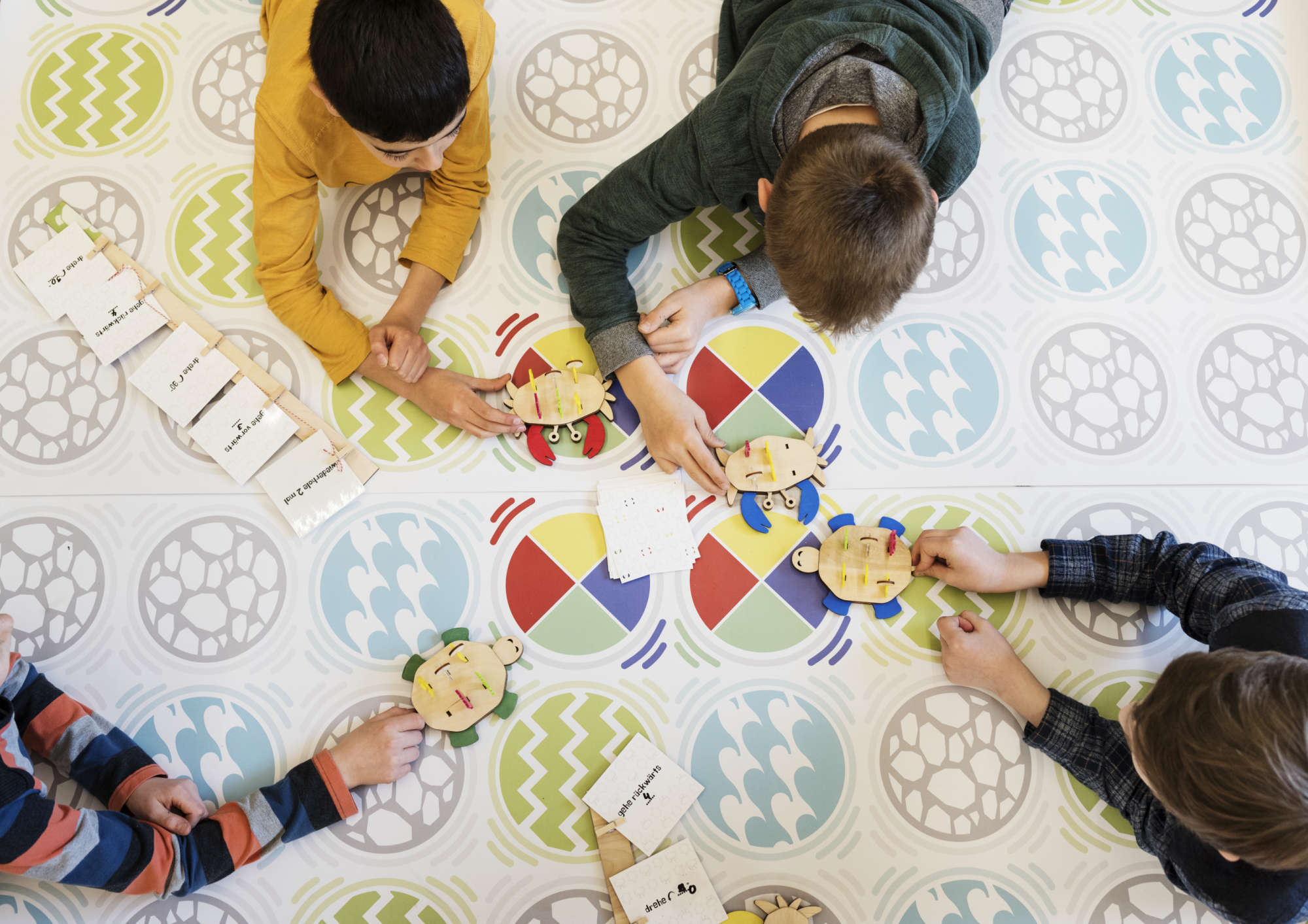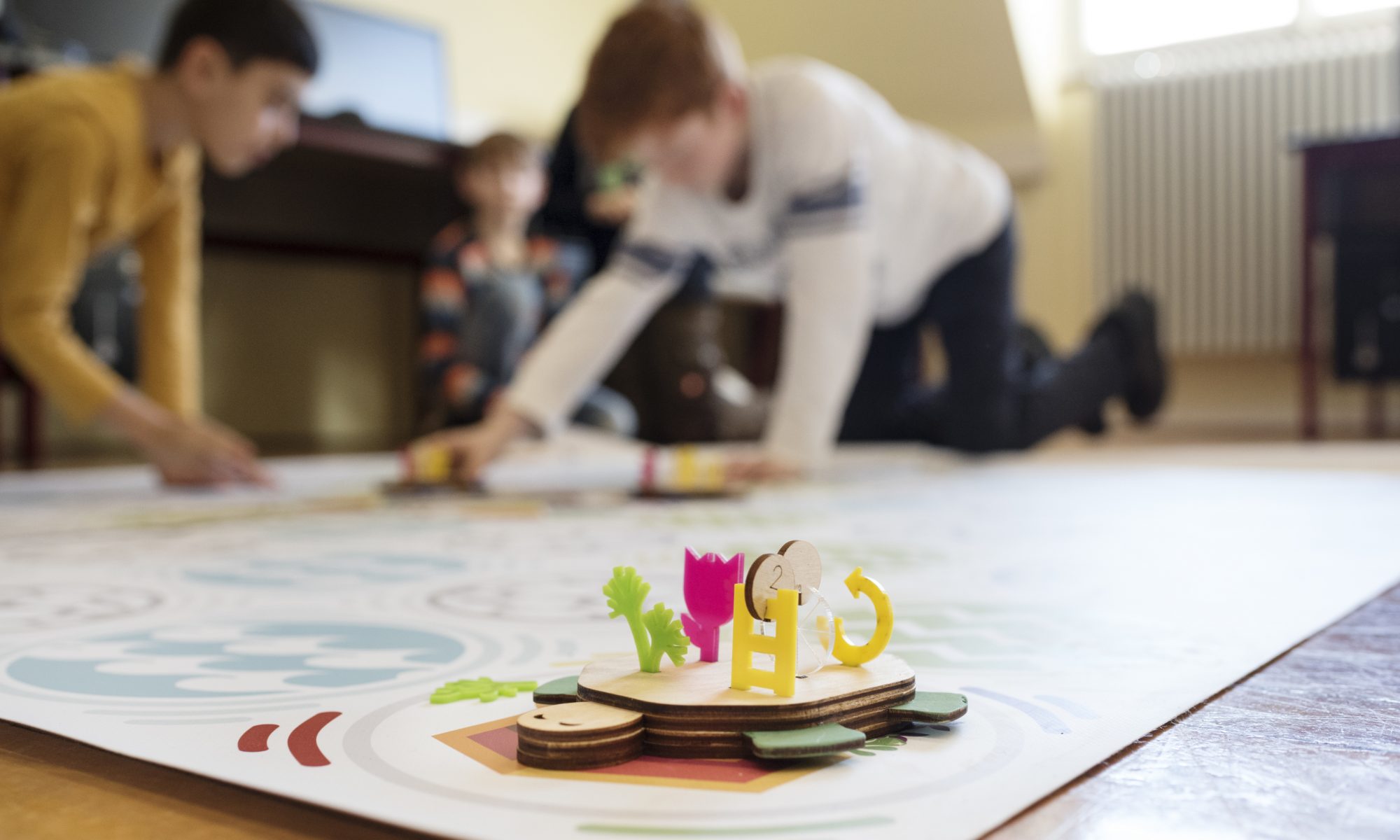2018-10-16 | INTERNATIONAL EDUCATIONAL GAMES COMPETITION: 1ST PRIZE FOR “CRABS & TURTLES” BY KATERINA TSARAVA AND LUZIA LEIFHEIT.

Katerina Tsarava of the Leibniz-Institut für Wissensmedien (IWM) and Luzia Leifheit of the LEAD Graduate School won the the 1st prize in the category of non-digital games and the joint overall 1st prize of the competition at the 6thInternational Educational Games Competition for their board game series “Crabs & Turtles: A Series for Computational Adventures” on October 4 and 5. The competition was part of the 12th European Conference on Games Based Learning at SKEMA Business School in Sophia Antipolis, France.
The life-size board game series “Crabs & Turtles” were developed at the IWM in the junior research group Neurocognitive Plasticity by Tsarava and Leifheit. It is aiming to train computational thinking skills to primary school children like algorithmic thinking, sequences, loops, constants, variables, etc. in a low-threshold manner. The games are integrated into the structured course curriculum “Verstehen wie Computer denken” (Understanding how computers think) of the Hector Children Academies, in which primary school students learn informatics concepts in a playful manner and apply their acquired skills at programming afterwards. The project is funded by the Hector Stiftung II and the courses are offered in more than 20 Hector Children Academies in Baden-Württemberg since October 2018.
2018-04-04 | HOW CRABS AND TURTLES SUPPORT COMPUTATIONAL THINKING
Wooden turtles, colourful plugs and a treasure – Ph.D. student Katerina Tsarava of the project group Neuro-cognitive Plasticity of the Leibniz-Institut für Wissensmedien (IWM) plays for science.
With her life-size board game “Crabs and Turtles”, Katerina Tsarava examines how the game environment affects the computational thinking development of children between 8 and 9 years. In the game children solve math related tasks with variables or have to figure out the most efficient way to collect treasures by creating effective sequences of commands which is similar to coding concepts. By doing so, computational thinking related skills are trained like abstraction, pattern recognition and decomposition.
“Games or game-based applications are an increasingly important mechanism for cognitive training, learning and educational interventions because of their ability to keep players motivated to play and to interact with the application or learning environment, respectively,” says Tsavara. Recent research even indicates that game-based learning is more effective in terms of learning and retention than conventional instruction methods.
In her Master thesis project, Tsavara has already studied computational thinking and designed a life-size board game for teaching students basic programming skills. Her current game was further developed and integrated into a new Core Course (“Verstehen wie Computer denken”) of the Hector Kinderakademie in collaboration with Luzia Leifheit from the LEAD Graduate School. The game was tested so far in a Student Enrichment Center in Thessaloniki, at the Kinderakademie of the Hector Institut fuer Empirische Forschungsbildung in Tuebingen (Wanne) and in several beta-test playing sessions at the IWM. The upcoming months, Katerina Tsavara and Luzia Leifheit will apply “Crabs and Turtles” in other Hector Kinderakademien in Baden-Wuertemberg (inter alia in Reutlingen, Nuertingen and Lossburg).

